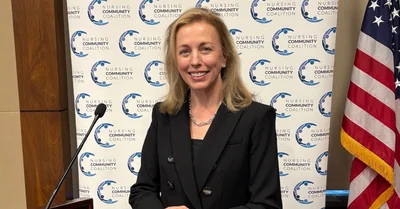Michael S. Regan, EPA Administrator | https://en.wikipedia.org/
The U.S. Environmental Protection Agency (EPA) has finalized a settlement with the City of Tolleson, Arizona, addressing alleged violations of the Clean Air Act and the Emergency Planning and Community Right-to-Know Act at the Tolleson Wastewater Treatment Plant. These laws are designed to ensure safe handling of hazardous chemicals. The plant uses chlorine, a regulated toxic chemical that can cause serious health effects.
The settlement requires Tolleson to take action to return to compliance and pay a civil penalty of $47,068. Additionally, the city will undertake two voluntary supplemental environmental projects (SEPs) worth $268,192 to improve its chlorine disinfection system.
"Arizona residents should not have to live with the threat of exposure to harmful chemicals and hazardous waste," said EPA Pacific Southwest Regional Administrator Martha Guzman. "EPA's enforcement action holds facilities accountable when they fail to follow our nation's critical chemical safety laws."
In November 2022, an EPA inspection identified several deficiencies at the plant:
- Failure to submit annual hazardous chemical inventory forms.
- Failure to complete compliance audits and revalidate process hazard analyses.
- Failure to correct equipment deficiencies on time.
- Failure to adequately maintain proper documentation of its chemical safety program.
Following this inspection, Tolleson made significant safety improvements including equipment repairs, installation of safety signage, protection for outdoor chlorine cylinders, improved documentation management systems, completion of a compliance audit, and revalidation of its process hazard analysis. Most deficiencies have been addressed; remaining tasks include providing documentation for the chlorine storage room's ventilation system and completing recommendations from the latest compliance audit by year-end 2024.
Tolleson's commitment extends further with two SEPs aimed at enhancing public health and safety. The first project involves installing a new chlorine dosing and detection system at the plant. The second is a study exploring less toxic alternatives for disinfection processes.
SEPs are environmentally beneficial projects or activities undertaken as part of an enforcement settlement but are not legally required. They provide additional environmental and public health benefits beyond legal compliance.
The Emergency Planning and Community Right-to-Know Act mandates facilities storing hazardous chemicals submit annual inventories containing facility identification information, emergency contacts, details about stored chemicals, among other data useful for local planners and responders.
The Clean Air Act Risk Management Program aims to prevent accidental chemical releases by requiring facilities holding certain quantities of regulated substances develop risk management plans submitted to EPA.
For more information on reporting possible violations visit EPA’s enforcement reporting website or learn more about EPA's Pacific Southwest Region through their social media channels.





